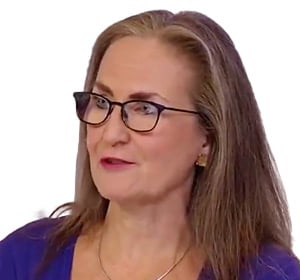
Governance Surveys
The third Davos Cyber Future Dialogue was a gathering of global cross-disciplinary cyber experts focused on building a safer and more peaceful cyber future.
The meeting, where I was a delegate for the second time, reflected a larger gestalt evident in Davos this year: nonfinancial issues—including environmental, social, and governance (ESG) issues and cybersecurity—have become a more integral, “must-have” (not just “nice-to-have”) part of today’s global business priorities.
The World Economic Forum (WEF) agenda catalyzed this reality. A simple scan of the news from Davos this year irrefutably underscores the mainstreaming of ESG. The keynote from 17-year-old Swedish climate activist phenom Greta Thunberg, the creation of a new group of young “Global Shapers,” and a variety of major corporate announcements all rode the ESG wave that has been gathering momentum in recent years. The table below of major developments in only the past year reflects this global trend.
Major ESG and Sustainability Developments Affecting Business
| WHO | WHAT | WHEN |
| BlackRock’s Larry Fink |
CEO and Client Letters | 2019 and 2020 |
| European Commission | ESG Disclosure Directive | 2019 |
| FT | Moral Money Weekly Newsletter | 2019 |
| Bloomberg | Bloomberg Green Newsletter | 2019 |
| The Business Roundtable | Statement of Corporate Purpose | 2019 |
| US Securities & Exchange Commission | ESG Letters to Investment Funds Demanding More Information | 2019 |
| Goldman Sachs | Announces $750 Billion Sustainability Investment Goal by 2030 | 2020 |
| Goldman Sachs | IPO Board Diversity | 2020 |
| Edelman | 2020 Trust Barometer | 2020 |
| Allianz | 2020 Risk Barometer | 2020 |
| Bank of America Corp. | ESG Metrics Initiative | 2020 |
| Microsoft Corp. | Zero Carbon by 2050 Davos Announcement | 2020 |
| TCI Fund Management | “The World’s Most Profitable Hedge Fund Is Now a Climate Radical” | 2020 |
| United Nations | Reigniting the Final Decade Push for the Sustainable Development Goals | 2020 |
Source: Andrea Bonime-Blanc, GEC Risk Advisory 2020
But wait: There’s more. Coinciding with its 50th anniversary, the WEF published its new 2020 Davos Manifesto, called “The Universal Purpose of a Company in the Fourth Industrial Revolution,” which begins:
“The purpose of a company is to engage all its stakeholders in shared and sustained value creation. In creating such value, a company serves not only its shareholders, but all its stakeholders – employees, customers, suppliers, local communities and society at large. The best way to understand and harmonize the divergent interests of all stakeholders is through a shared commitment to policies and decisions that strengthen the long-term prosperity of a company.”
While ESG is definitely not new (just ask those of us who have been working in this space for decades), the sudden and overwhelming acceptance of ESG by mainstream business is what seems new. There are a few good reasons for this—our turbulent times and the rise of existential natural and man-made risk increasingly require all hands on deck in our fragile global village.
The Planetary Picture
There are a number of larger-scale factors that have accelerated the global ESG momentum so evident in Davos. I call these the “Ten Megatrends of Our Turbulent Times” in my new book, Gloom to Boom: How Leaders Transform Risk into Resilience and Value:
-
The Fourth Industrial Revolution: hurtling through space at the speed of light
-
Global trust collapsing: recession or depression?
-
A world of extremes: 21st-century ethical leadership paradox
-
Complex interconnected risk rising: beware “the purple techno-swan”
-
Ecological apocalypse: a decade to oblivion or salvation?
-
The new geopolitical abnormal: rumblings or tectonic shift?
-
The meteoric rise of “ESG” and the virtual stakeholder: mirage or reality?
-
Business as the new global social/moral conscience: fact or fake?
-
From hyper-transparency to super-opacity: reputation risk on steroids
-
Future fear: utopia, dystopia, life on Mars?
Additional, more granular strategic trends are evidenced in the World Economic Forum’s Global Risks Report 2020 (to me, the bible of global strategic risks that no executive or board member should miss). Using five categories of strategic risk (economic, technological, societal, environmental, and geopolitical), the WEF publishes this report annually and singles out the top 10 greatest likelihood and greatest impact global risks. For 2020, they are:
Greatest Likelihood
-
Extreme weather
-
Climate action failure
-
Natural disasters
-
Biodiversity loss
-
Human-made environmental disasters
-
Data fraud or theft
-
Cyberattacks
-
Water crises
-
Global governance failure
-
Asset bubbles
Greatest Impact
-
Climate action failure
-
Weapons of mass destruction
-
Biodiversity loss
-
Extreme weather
-
Water crises
-
Information infrastructure breakdown
-
Natural disasters
-
Cyberattacks
-
Human-made environmental disasters
-
Infectious diseases
Notice a pattern for 2020? For the first time ever, the top five most likely global risks are all environmental. This also means that some of the greatest opportunities in 2020 are for companies that address those risks by improving existing processes, products, or services, or by inventing new ones. Some forecasters see a range of $3 trillion to $30 trillion in ESG-related new investments coming up. It’s time for everyone to get cracking.
Igniting the ESG Conversation
So, what is a board to do with all this ESG information? Two simple things: First, make sure management addresses relevant ESG and technology issues (what I call “ESGT”) directly in business strategy. Second, ensure that the board itself is equipped to conduct proactive ESGT oversight. More concretely, this means that management and boards must:
-
Become familiar with their company’s most important ESGT issues, risks, and opportunities.
-
Have an internal system whereby those issues are integrated and considered by:
-
Issues/public relations/communications/social media management,
-
Enterprise risk management,
-
Investor and government relations,
-
Crisis management,
-
Performance incentives, and
-
Most importantly, business strategy formulation.
-
-
Understand the company’s stakeholder ecosystem: Who are your most important stakeholders beyond shareholders, and what are their expectations of your company on key ESG/ESGT issues?
Finally, boards should specifically consider the following:
-
Do you know what your CEO and C-suite are doing on ESGT issues? How are they being held accountable from a performance management standpoint?
-
Are any board members ESGT literate, or better yet, experts?
-
Is there a board committee (beyond the audit committee) that oversees ESGT issues, risks, and opportunities?
-
Does the executive team have one or more executives who are expert in ESGT matters?
-
How is the company organized on ESGT from a structural and reporting standpoint?
-
Has the company used any form of ESG metrics? If so, based on what protocols and reporting systems? Are these metrics being reported to the board?
-
Are the top ESGT issues integrated into enterprise risk management?
-
Is ESGT part of the business strategy discussion? Are there one or more ESGT experts seated at the strategy brainstorming table?
The above questions and suggestions are intended to ignite an ESGT strategic conversation in the boardroom and beyond.
It’s no longer a question of “if” but of “when” ESGT issues, risks, and opportunities will present themselves to your company. Isn’t it far better to be prepared—to have a systematic, proactive, value-protecting and -creating stance on ESGT—than to have a reactive, potentially value-destroying attitude that opens your company up to competitors or, worse, to a crisis that can be financially and reputationally destructive?
This year, Davos catalyzed the momentum of ESG. It is now up to boards and C-suites to grab the ESGT baton and run with it on behalf of shareholders and key stakeholders, not only to protect them but to innovate and create new value in a turbulent time.

Andrea Bonime-Blanc is founder and CEO of GEC Risk Advisory, a board member and advisor. An NACD 2022 Directorship 100 honoree, she is a global governance, risk, ethics, and technology strategist and counselor to business, government, and nonprofits. An author of multiple books and sought after keynote speaker, she is a life member of the Council on Foreign Relations.
